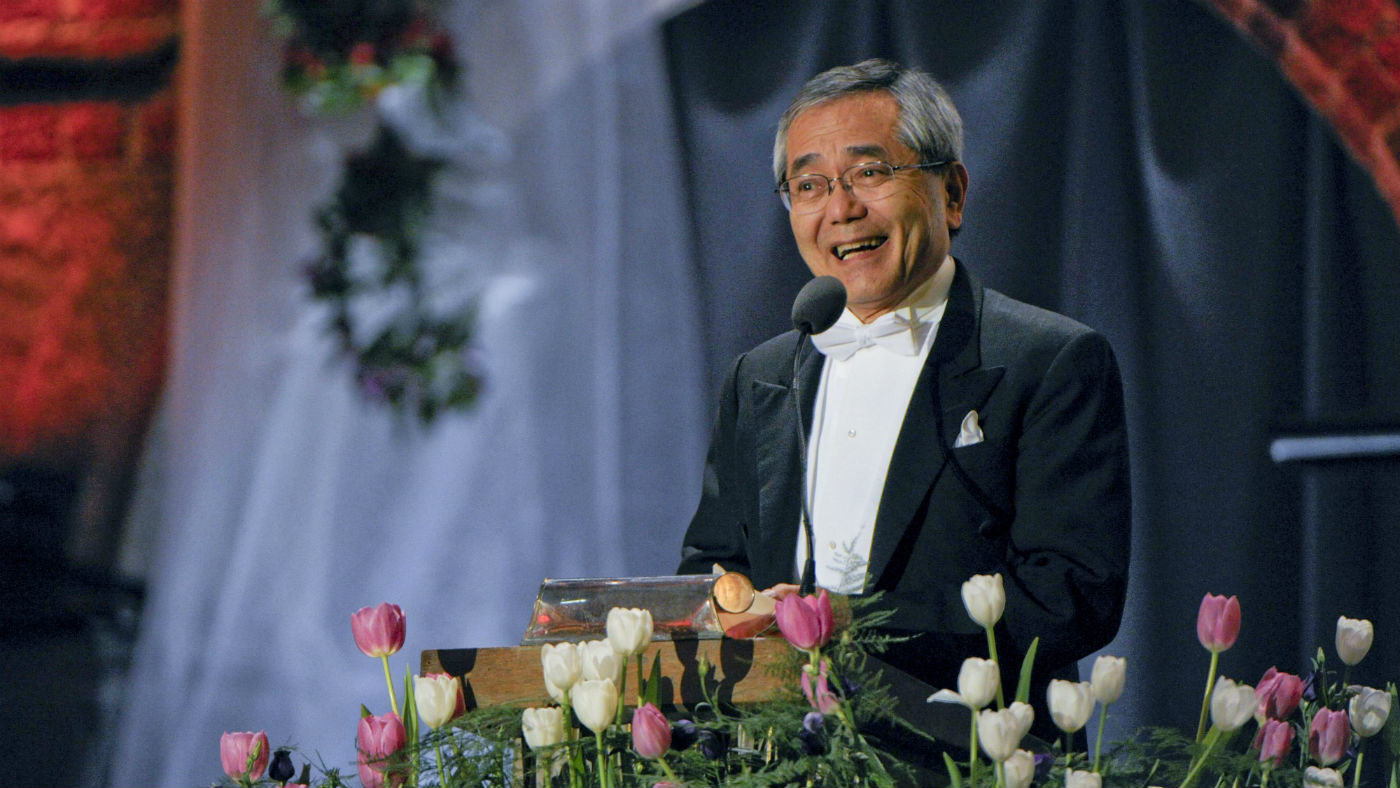Nobel winner found wandering on road near car containing wife’s dead body
Family believes Ei-ichi Negishi and wife Sumire were heading to Chicago airport

A free daily email with the biggest news stories of the day – and the best features from TheWeek.com
You are now subscribed
Your newsletter sign-up was successful
US police are investigating the death of the wife of a Japanese Nobel Prize-winning chemist after her body was discovered at a landfill site in Illinois.
Ei-ichi Negishi and his wife, Sumire, were reported missing on Monday. Ei-ichi was found by police early the next day wandering along a rural Illinois road about 200 miles from the couple’s home in West Lafayette, Indiana, where he is a professor at Purdue University.
After taking him to hospital, deputies found Sumire’s body in her car at a nearby rubbish dump, according to the Ogle County Sheriff’s Office.
The Week
Escape your echo chamber. Get the facts behind the news, plus analysis from multiple perspectives.

Sign up for The Week's Free Newsletters
From our morning news briefing to a weekly Good News Newsletter, get the best of The Week delivered directly to your inbox.
From our morning news briefing to a weekly Good News Newsletter, get the best of The Week delivered directly to your inbox.
Police have said they do not suspect foul play. According to Ei-ichi’s family, Sumire was “near the end of her battle with Parkinson’s”. In a statement released to media, they said that they believe he was “trying to get to the airport for a trip”.
The Orchard Hills Landfill, where Sumire was found, is about eight miles (12km) from Chicago Rockford International Airport, the BBC reports.
"We are very proud of his distinguished career, but more importantly know him as a beloved and loyal husband, father and grandfather,” the family said. “Thank you for your compassion and for respecting our privacy as we process this tragic loss."
Ei-ichi Negishi was awarded a Nobel Prize in 2010 for his work in palladium-catalysed cross coupling to link carbon atoms and synthesise molecules.
A free daily email with the biggest news stories of the day – and the best features from TheWeek.com
-
 5 cinematic cartoons about Bezos betting big on 'Melania'
5 cinematic cartoons about Bezos betting big on 'Melania'Cartoons Artists take on a girlboss, a fetching newspaper, and more
-
 The fall of the generals: China’s military purge
The fall of the generals: China’s military purgeIn the Spotlight Xi Jinping’s extraordinary removal of senior general proves that no-one is safe from anti-corruption drive that has investigated millions
-
 Why the Gorton and Denton by-election is a ‘Frankenstein’s monster’
Why the Gorton and Denton by-election is a ‘Frankenstein’s monster’Talking Point Reform and the Greens have the Labour seat in their sights, but the constituency’s complex demographics make messaging tricky
-
 Epstein files topple law CEO, roil UK government
Epstein files topple law CEO, roil UK governmentSpeed Read Peter Mandelson, Britain’s former ambassador to the US, is caught up in the scandal
-
 Iran and US prepare to meet after skirmishes
Iran and US prepare to meet after skirmishesSpeed Read The incident comes amid heightened tensions in the Middle East
-
 Israel retrieves final hostage’s body from Gaza
Israel retrieves final hostage’s body from GazaSpeed Read The 24-year-old police officer was killed during the initial Hamas attack
-
 China’s Xi targets top general in growing purge
China’s Xi targets top general in growing purgeSpeed Read Zhang Youxia is being investigated over ‘grave violations’ of the law
-
 Panama and Canada are negotiating over a crucial copper mine
Panama and Canada are negotiating over a crucial copper mineIn the Spotlight Panama is set to make a final decision on the mine this summer
-
 Why Greenland’s natural resources are nearly impossible to mine
Why Greenland’s natural resources are nearly impossible to mineThe Explainer The country’s natural landscape makes the task extremely difficult
-
 Iran cuts internet as protests escalate
Iran cuts internet as protests escalateSpeed Reada Government buildings across the country have been set on fire
-
 US nabs ‘shadow’ tanker claimed by Russia
US nabs ‘shadow’ tanker claimed by RussiaSpeed Read The ship was one of two vessels seized by the US military